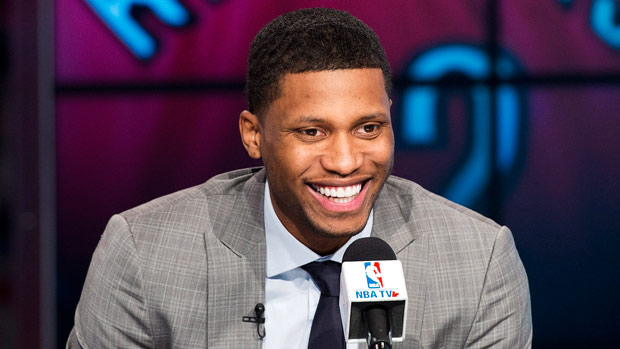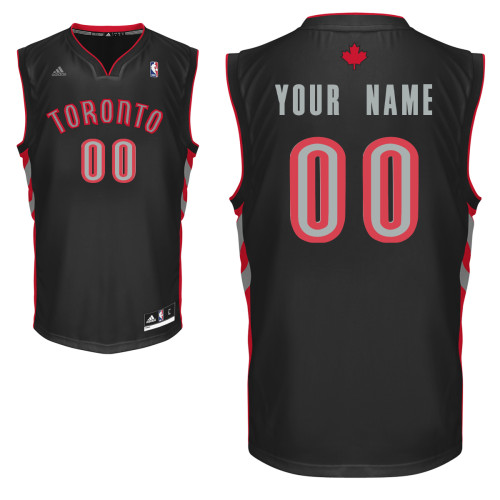I know there is a large contingent of Raptors fans that desperately want their team to tank, but I got news for you: Tanking ain’t easy.
Being really really bad is easy – just strip a roster of all its talent and put an incompetent coach on the sidelines – but that’s not the same as tanking.
Tanking demands a certain balance of savvy and luck, because (in theory) you are tanking now so that you can win later, which means that getting that balance right is essential. Yes, you want to be bad; bad enough to ensure a really high draft pick because high draft picks are the reason you’re tanking. However, you don’t want to be so bad that you can’t pull yourself out of your tailspin when you’ve acquired the assets that you wanted (right Detroit?). You don’t want to be so bad that you stunt the development of the young players you already have (right, Sacramento?). You don’t want to be so bad that the fan base doesn’t care when you decide that you’re ready to win again (right Charlotte?).
Then there is your competition. Yes, there is legitimate competition nowadays when a team decides to tank. It’s become widely accepted that it’s better to be bad than mediocre, so teams that are facing mediocrity are increasingly looking to strip their roster bare in the name of tanking. That means that you can’t just be bad, anymore, you have to be worse than the teams that are trying to tank alongside you. Going the tanking route and ending up with the 7th or 8th pick in the draft is sort of a lose-lose proposition: you threw away a season and didn’t even get a noteworthy pick as recompense. Much like the teams vying for titles at the top of the NBA, some teams are just better equipped to win (or lose) based on their personnel and circumstances. Try as they might, some teams just can’t make themselves bad enough to justify going the tanking route.
Then there are the picks themselves – remember how they’re technically supposed to be attached to real, living people? Well, those prospects sometimes don’t play ball with a team’s tanking strategies. Sometimes a blue chip prospect doesn’t pan out in college like everyone thought they would (Adam Morrison). Even worse, sometimes a prospect does enough to get themselves into the top-five conversation only to decide to stay in school (Perry Jones) or overseas (Dario Saric) and bypass the draft for a year. Suddenly that deep draft pool that got a team interested in tanking is a lot shallower by draft night, and you don’t get that lost season back on draft night just because you’re facing a group of unremarkable players that won’t help eradicate the memory of a season of embarrassing losses.
Of course, sometimes you get a nice high pick in a nice deep draft and still lose out because playing the draft is a gamble, always has been and always will be. Sometimes players don’t develop like you think they will (Sebastian Telfair). Sometimes injuries derail a career before it has even started (Greg Oden). Sometimes the player is everything you’d hoped for but he doesn’t want to play with your franchise after a couple of years (you know who). Sometimes they are good-but-not-great but to avoid losing them you overpay them (Andre Iguodala, Rudy Gay), crippling your team’s salary cap and preventing the roster from improving enough to challenge for more than a Playoff spot.
It’s funny, too, when one looks back at oft-cited of high draft picks that turned into franchise-altering success stories. Two of them, Tim Duncan and Kevin Durant, came about because of injuries, not tanking. Derrick Rose went to Chicago because the Bulls jumped eight spots at the lottery. The Clippers were awful for decades before they landed Blake Griffin, and he didn’t turn the franchise around so much as he made the franchise palatable for Chris Paul two years ago.
In fact, looking at the 2013 Playoff picture, I can only count two instances of successful tanking breeding success. The first is Oklahoma City, who didn’t tank to get Durant but opted to tank once they had him so that they could secure guys like Russell Westbook and James Harden. So, in their case they tanked not for their game-changer but for his support system. The other example would be Golden State and, like OKC, they only tanked at the end of the 2011-12 season to ensure that they were bad enough to keep their draft pick (it would have gone to Utah) and they landed Harrison Barnes as a result. Before that they were going for it and were just bad, and they lucked out at getting Stephen Curry and Klay Thompson with the 7th and 11th picks, respectively.
On the other side of the coin you have a lot of examples of Playoff teams that rebuilt on the fly, without every completely committing to a tank-job (San Antonio, Indiana, Houston, Denver, Memphis, Chicago and the Los Angeles Lakers), and their successes cannot be ignored in any discussion about merits and demerits of stripping a roster bare and tanking.
Tanking is simply one strategy. One of many. I’d argue it makes as much sense as any other strategy, and as far as strategies goes if you have the personnel to pull it off. If you aren’t set up right for tanking, though, you have to go a different way.
For the Raptors, I’m just not sure that they have the right personnel to successfully pull off a tank job. Firstly, you have Jonas Valanciunas locked-in as the closest thing the club has to a young franchise player, and he’s probably already better than any young assets in Orlando, Charlotte, Phoenix and Milwaukee. Secondly, you have a club that appears motivated to at least start the season with Rudy Gay flanking him, and despite his warts Gay is more talented than anyone on most of the expected tanking candidates. Thirdly, you have a coach on a one-year contract that you would have a very hard time convincing to make tanking-based decisions, especially if 2011-12 is any example. Then if all that wasn’t enough, you have an organization that has been bad for so long they are starting to lose relevancy in their home market, which makes tanking an unappetizing proposition from a managerial position, too.
I’ve used this word a lot since Masai Ujiri took over the club, but I think his philosophy, both generally and with the Raptors specifically, is to be opportunistic. He doesn’t lock himself dogmatically into one way of doing things, he keeps himself in a position to be flexible, to make moves when the right moves make themselves available and waits patiently until those kinds of moves are there. I don’t think that he’ll ever commit whole hog to tanking because it tends to kill flexibility and the odds are too long that you actually get a payout at the end worthy of the sacrifice. He’ll acquire picks when he can because picks have value no matter what a team’s strategy is. He’ll try and avoid large, onerous, multi-year contracts unless the player is both truly worth it and can still be moved later. He’ll make moves that allow him to accomplish his immediate goals while also retaining the flexibility to change course down the road because that affords him the luxury of being able to shift when something isn’t working and going all in when something is.
For those that think this draft is worth tanking for, though, I offer this: no less than seven teams appear to be down for a tank job this season (Orlando, Charlotte, Phoenix, Sacramento, Philadelphia, Boston and Milwaukee) and more could be added to that list if injuries derail another team’s season. I also submit that at least one of the highly-touted prospects this NCAA season won’t live up to his potential and that every year at least one lottery prospect decides to stay in school, so let’s play the odds and say one stays next year, too.
Now let’s look at the Raptors. They’d need to unload Gay and Lowry, for sure, in order to plummet to the depths of some of those aforementioned teams, and they couldn’t take legit talent back because that might help the team win. Since neither Gay nor Lowry guarantees you great draft picks (their respective contract situations make it hard for teams to surrender picks for them), you’d probably lose value in any transaction that respects the hopes of being bad enough next year to ‘compete’ with the league’s worst teams. Losing value in a trade is almost never a good management strategy, and it certainly runs counter to Ujiri’s history as a team GM.
If they did trade Gay and Lowry for pennies on the dollar, though, they’d still be at the mercy of the lottery balls. Charlotte had one of history’s worst-ever seasons two years ago (in theory, a tanking victory) while trying to land Anthony Davis and they missed out on him by one pick. Yes, 2014 offers more potential franchise-changing talent than 2012, but there is also much more competition vying for it. How much would the Raptors really need to sacrifice in order to get in on the tanking game in a real way, and if one is thinking dispassionately do the rewards really outweigh the risks in such a scenario?
I guess that’s a decision that each fan must make for themselves, but I don’t think those that favour the risk will be enamoured of Ujiri’s strategy. He had some real success building opportunistically in Denver, leveraging assets to make the team a little better after every transaction. You have to figure there is a reason the Raptors were willing to throw all that money at Ujiri to bring him back to Toronto, and I have to believe one of the biggest reasons would be Ujiri’s dexterity at building a competitor in Denver without resorting to tanking.
Tanking is an ugly business, and despite the strategy’s growing number of supporters, it guarantees nothing and hasn’t exactly proven to be a more viable path to rebuilding than any other route. Like I said, it’s a strategy, one of many, and not one that I think the Raptors would benefit from employing in the immediate future.




